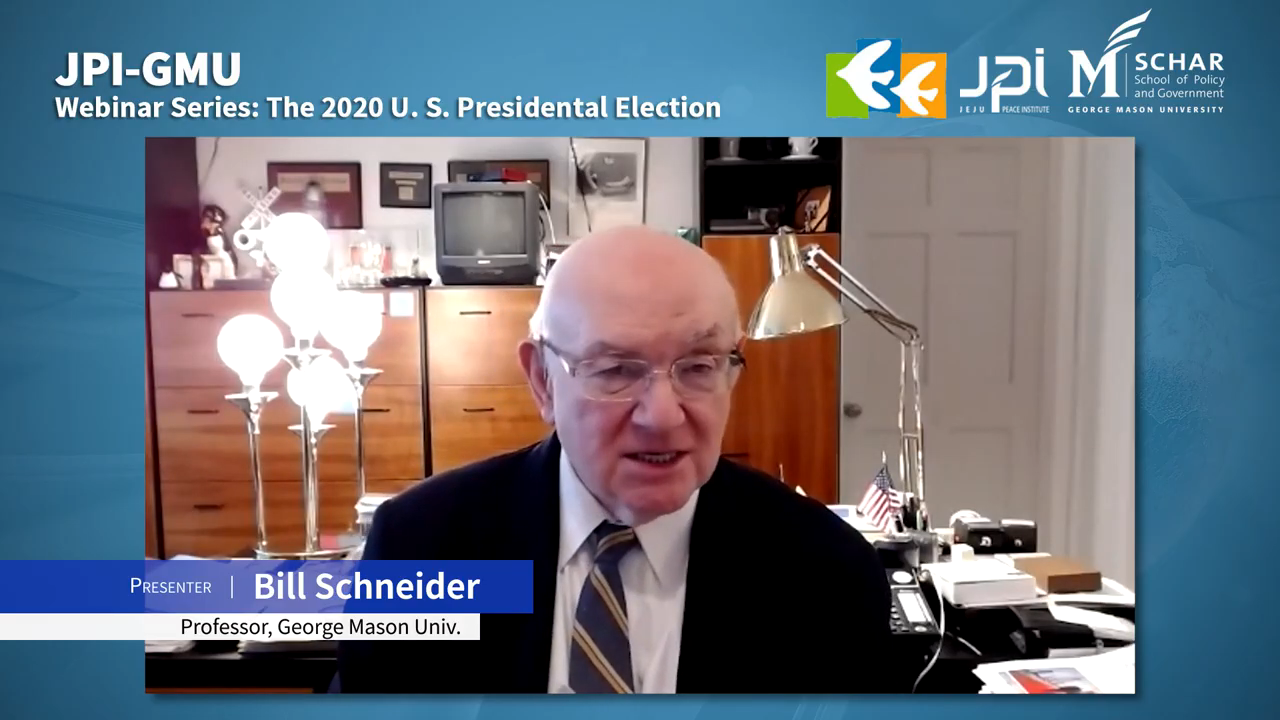Review of [JPI Online Conferences] 2020 US Presidential Election
Video Link: https://youtu.be/tyropZiKQp0?t=335
The presidential elections of the United States are the business that has long ago transcended the realm of domestic politics of the US and became the spectacle for the wider international community. Emerging victorious from the Cold War, the United States claimed the global hegemon’s position, making the United States president de-jure one of the world’s most influential people. That is why at times of conflict, the whole world looks up to the United States to take the lead, which was seen during conflicts in former Yugoslavia, the First Gulf War, and others.
However, the reality may be that the American electorate’s historical perception of the United States’ involvement abroad is not universally beloved. The 2016 Presidential Election is a clear testimony towards a shift in attitudes and the deep state of polarization that American politics find themselves in, with a very unorthodox candidate Donald Trump conquering the electoral college while failing to secure the popular vote.
As a nation and society, arguably, the United States is more divided than in the 1860 Presidential Elections. Presidential Elections. Presidential Elections. Dr. Schneider argues that Trump is perhaps not a die-hard conservative, that people falsely believe he is. Instead, he is an isolationist with an evident populist inclination inspiring lesser-educated white evangelicals.
Societally, the United States is facing several crises, with an economic one, just being a part of the larger problems that exploded in 2020. COVID-19 and the outcry against systemic racism are two other crises that the United States is forced to deal with amid, arguably, the worse economic Recession since 2008.
“A consciousness changing moment in the United States, and for that matter in the world,” said Dr. Schneider. Globalization and multilateral institutions were seen as the pillars that would hold the world together, and yet President Trump demonstrates how fragile those institutions are. The emphasis on the “America First” notion is appealing to many voters in the US. Still, such a slogan is self-defeating, as the United States cannot maintain its power without its global commitment to the world order it helped establish.
The situation is further complicated by the fact that the Trump administration cannot maintain domestic stability, with the racial protests quickly getting out of control. That is why, America is forced to address police violence tied into the issue of systemic racism, which re-emerged after the police shot several African-American citizens. Likewise, the United States has been consistently maintaining its role with the most COVID-related deaths in the world, 209,568 people as of October 24th. In fact, 54% of Americans disapprove that the Trump administration handled the virus and believe that the death toll could have been lower.
With Trump’s first four-year term coming to a conclusion, there is a growing desire within the democratic camp for a change. Joe Biden is seen by many as the beacon of hope after the humiliating defeat of Hilary Clinton in 2016. For a long-time, polls have been a tool that served as the means to indicate which political candidate has higher popular support. Yet, for Hilary Clinton, who had “85% to win the Presidential Race,” according to the New York Times, that spelled her demise. As dissatisfied with the nomination, democratic voters refused to cast a vote for Hilary, instead choosing not to vote or vote for the third-party candidate undermining the Democratic Party.
On a personal level, Donald Trump’s presidency was nothing short of a disappointment. None of the promises made by Mr. President materialized, and the United States is seemingly losing ground to the growing Chinese threat, which Trump failed to control. Of course, while many are optimistic that Biden can overturn the US public diplomacy’s downfall, such hopes are nothing short of optimistic. The alliance systems’ value will be higher under Biden, but his foreign threats, like China, seem to be incoherent. Therefore no significant changes should be expected. Elections are only two weeks away; as of October 24th, the fight between Biden and Trump will be fierce. Yet, I believe that the fight will be far from over after the November election’s as even if Biden wins, he still needs to be inaugurated, and Trump will not make that process easy.
Ilya Kim is an ethnically-Korean student from Russia, currently majoring in Global Affairs with a Global Governance concentration at George Mason University Korea campus. Now, he is beginning his term as a research fellow at the Center for Security and Policy Studies – Korea. His research interests lay in North Korean development and Russo-East Asian relations beyond the Soviet Union era.
Photo can he found here




